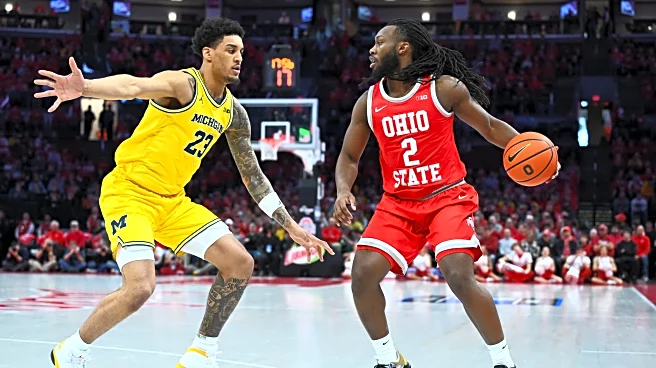What's Happening?
John Mitchell, appointed as head coach of England Women in late 2023, successfully led the team to victory at the Women's Rugby World Cup. Under his leadership, England won all six matches, culminating
in a 33-13 victory over Canada on September 27, 2025, at Twickenham. Mitchell's approach involved creating a supportive environment that allowed players to express themselves, which was a departure from his previous coaching methods in men's rugby. His strategy focused on understanding the existing strengths of the team and fostering an authentic and emotionally connected atmosphere.
Why It's Important?
Mitchell's success with the England Women's team highlights the importance of adaptive leadership and cultural transformation in sports. By prioritizing emotional connection and authenticity, Mitchell was able to unlock the team's potential, leading them to their first World Cup victory in over a decade. This achievement not only elevates the status of women's rugby but also sets a precedent for coaching strategies that emphasize personal growth and team cohesion. The victory is significant for the sport's development and could inspire similar approaches in other teams and sports.
What's Next?
Following their World Cup triumph, the England Women's team is likely to continue building on the cultural and strategic foundations laid by Mitchell. The success may lead to increased investment and interest in women's rugby, both in England and globally. Other teams might adopt similar coaching philosophies, focusing on emotional intelligence and team dynamics. Mitchell's methods could influence coaching practices across various sports, promoting a shift towards more inclusive and supportive environments.
Beyond the Headlines
Mitchell's approach underscores the evolving nature of sports leadership, where emotional intelligence and adaptability are becoming crucial. His success with the Red Roses may encourage more male coaches to transition into women's sports, bringing diverse perspectives and strategies. This shift could contribute to breaking down gender barriers in sports coaching and management, fostering a more inclusive and equitable sporting landscape.










